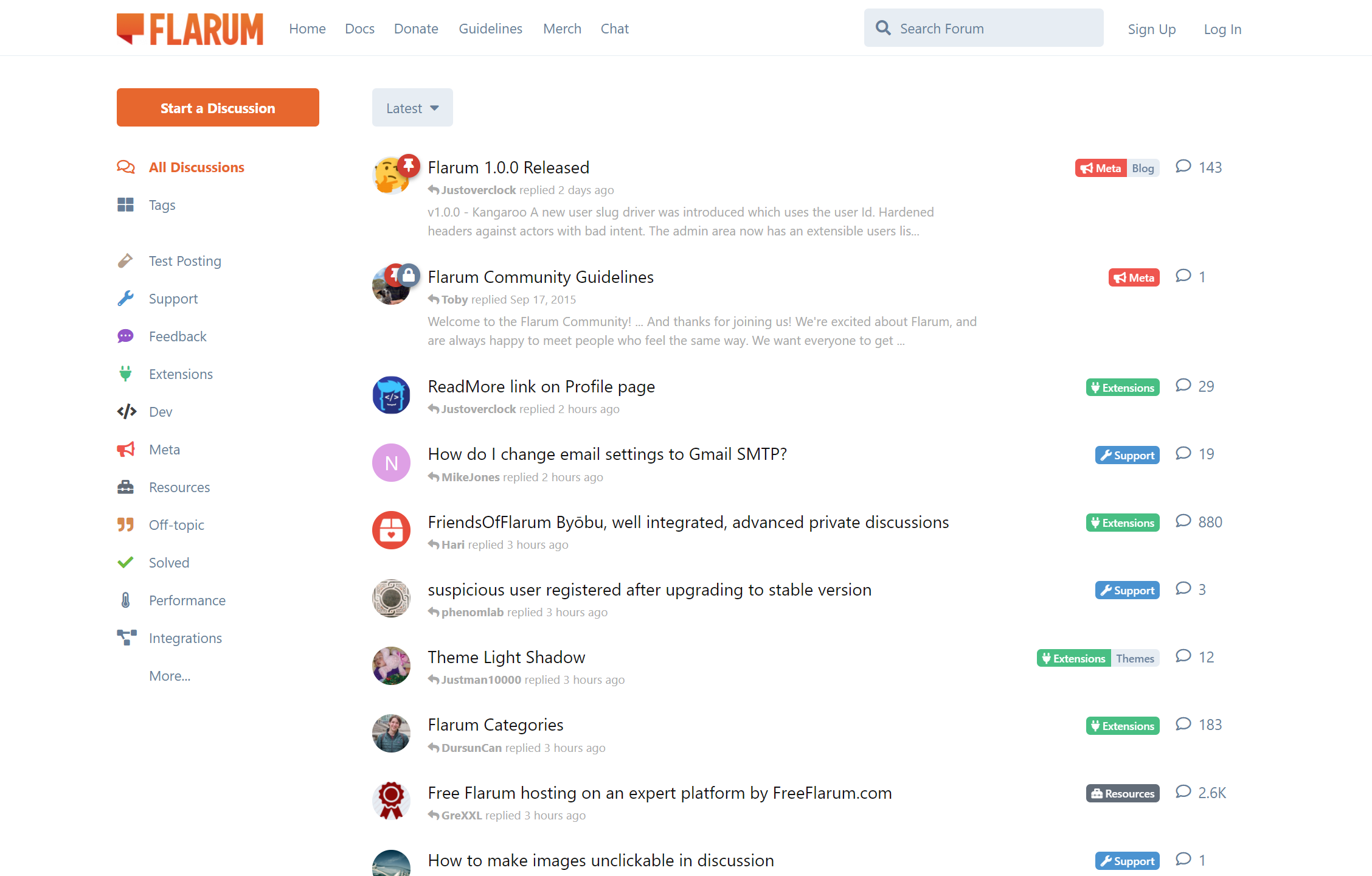Flarum is a delightfully simple discussion platform for your website. It's fast and easy to use, with all the features you need to run a successful community. It is designed to be:
-
Fast and simple. No clutter, no bloat, no complex dependencies. Flarum is built with PHP so it’s quick and easy to deploy. The interface is powered by Mithril, a performant JavaScript framework with a tiny footprint.
-
Beautiful and responsive. This is forum software for humans. Flarum is carefully designed to be consistent and intuitive across platforms, out-of-the-box.
-
Powerful and extensible. Customize, extend, and integrate Flarum to suit your community. Flarum’s architecture is amazingly flexible, with a powerful Extension API.
Read the Installation guide to get started. For support, refer to the documentation, and ask questions on the community forum or Discord chat.
Thank you for considering contributing to Flarum! Please read the Contributing guide to learn how you can help.
This repository only holds the Flarum skeleton application. Most development happens in flarum/core.
If you discover a security vulnerability within Flarum, please follow our security policy so we can address it promptly.
Flarum is open-source software licensed under the MIT License.







